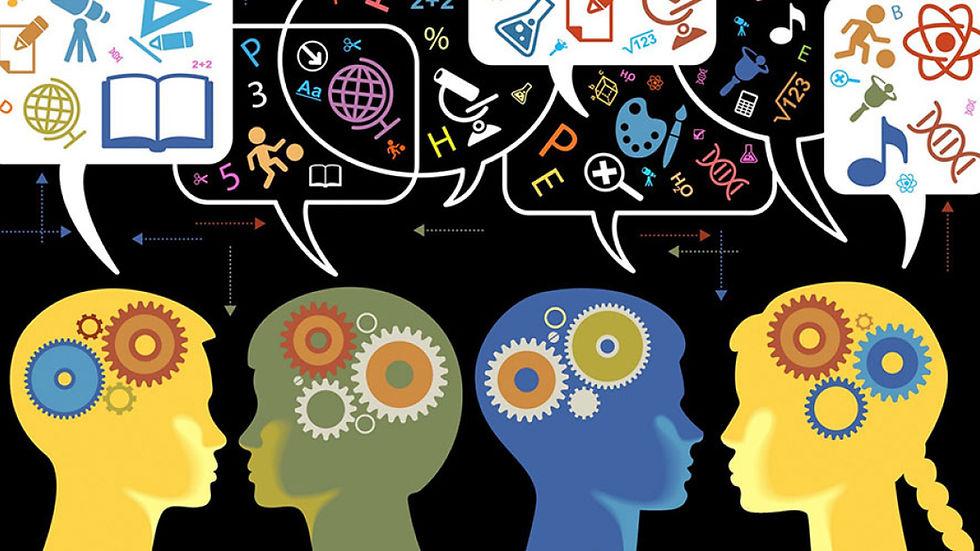Why Americans don't trust schools to teach history
- Joanne Jacobs

- Sep 12, 2022
- 3 min read
"Americans are losing faith in the ability of public schools to teach controversial issues, writes Natalie Wexler. One person's "hard history" is another person's "indoctrination."

"How the history of racism affects America today" is a touchy subject, she writes. "One poll found that only 55% of parents and 44% of adults in general had faith in their community’s teachers to 'appropriately handle' the topic."
As a result, "at least 18 states have restricted teaching on race and other controversial topics," leaving teachers uncertain what they can and can't discuss.
At the elementary level, many students learn little or no history, writes Wexler. She's the author of The Knowledge Gap on the importance of students developing broad background knowledge so they can understand what they read. In secondary school, students get social studies, but only about 40 percent of social studies teachers majored in history.
(Wexler) was struck by a comment from an eighth-grade history teacher that was reported in Ed Week some months ago. Teachers weren’t trying to make white male students feel guilty about the past, she said, but she needed to teach “that the laws and systems of our country were purposefully developed to elevate white, cis males.” She added, “That is the truth.”
Actually, it’s not. As someone who spent a decade as a professional historian studying the United States in the late 18th century, I can say with some confidence that the men who drafted the Constitution were not “purposefully” trying to advantage people like themselves. That was part of what resulted from their actions, to be sure, but they saw themselves as expanding human rights, not restricting them. And they were right about that, even if they didn’t expand them as much as we think they should have.
Many K-12 students don't know the basics of history, writes Wexler. "It’s perfectly appropriate for students to pass judgment on the actions of individuals in the past and to ask what the standard narrative has left out . . . But they can do those things intelligently only after they understand what happened, based on generally agreed-upon facts, and what it looked and felt like to those involved."
Wexler suggests teachers looked at knowledge-rich elementary curricula and the Four Question Method for approaching historical topics.
"The arrogant and immature idea that history is a monochromatic story of good and evil, of oppressors and oppressed, is becoming the dominant narrative," writes teacher Alan S. Rome in Quillette.
He quotes poet Wendell Berry, who said: "The probability is overwhelming that if we had belonged to the generations we deplore, we too would have behaved deplorably. The probability is overwhelming that we belong to a generation that will be found by its successors to have behaved deplorably."
In a New York Times Magazine story on teaching about systemic racism in rural Michigan, the reporter sits in on an 8th-grade history lesson. It starts with a handout that provides a muddled definition of "archetype." It can mean a model, but not a role model.
“In recent times, it has become popular to talk about all parts of a historical figure’s life rather than simply their archetype. . . . This includes negative parts of someone’s life who has typically been portrayed as a hero. (Thomas Jefferson.) Examples being that they may have owned slaves, they may have killed Indigenous people, etc., despite contributing a lot to the U.S. government.”
The teacher asks: “Does being a bad person diminish your accomplishments?”
One student says it does. Another says, “Laws are always changing.”
I'd love to know how much her students know about Thomas Jefferson -- other than that he owned slaves.
When I was in fifth grade, we discussed the meaning of "all men are created equal" and the fact that women, blacks and Indians were not treated as equals. We knew the founding fathers were not perfect men.



We keep thinking that teaching history is like teaching math where there is one right answer (at least for K-12 math). However, history does not work that way since every person has biases when it comes to history. The only way to really learn history is going back to more primary texts and not through textbooks as was pointed out in the book "Lies my Teacher Told Me" stated in 1995. But how many people with just a BA in history could teach history without any biases.